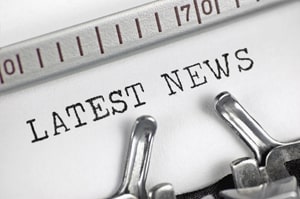INDIANAPOLIS — Nearly 30,700 Hoosiers filed for unemployment benefits last week, the lowest weekly total in the past two months, according to the U.S. Department of Labor.
A total of 642,692 initial unemployment claims have been filed in Indiana over the past eight weeks as the spread of COVID-19 forced countless businesses to close and shrink their workforces.
In Bartholomew County, an additional 559 initial claims for jobless aid were filed during the week of May 2, the latest figures available from the Indiana Department of Workforce Development. A total of 8,818 claims were filed in the county between March 15 and May 2.
Though unemployment claims remain historically high in Bartholomew County and Indiana, they have been steadily declining since peaking in April.
The Indiana Department of Workforce Development has paid out $1.4 billion in unemployment insurance benefits to applicants across the state since March, including $440 million in state benefits and $1 billion in federal benefits, Payne said.
The Indiana Department of Workforce Development has had nearly 2 million phone call interactions through its call center since the start of April and over 350,000 during the first half of May, said Payne, who also claimed that the average call wait time was reduced by 50% between April 24 and May 11.
“Our initial claims (across the state) for the week ending May 9 are at 30,691,” Payne said. “This continues a weekly downward trend since our peak back in March.”
Nearly 3 million workers across the country applied for unemployment benefits last week, raising the total over the past two months to roughly 36 million, The Associated Press reported.
The wave of layoffs has heightened concerns that more government aid is needed to sustain the economy through the deep recession caused by the viral outbreak, according to wire reports.
Republicans in Congress are locked in a standoff with Democrats, who have proposed trillions more in aid, including for struggling states and localities, beyond the nearly $3 trillion already given to individuals and businesses. Republican leaders say they want to first see how previous aid affects the economy and have expressed skepticism about approving much more spending now.





